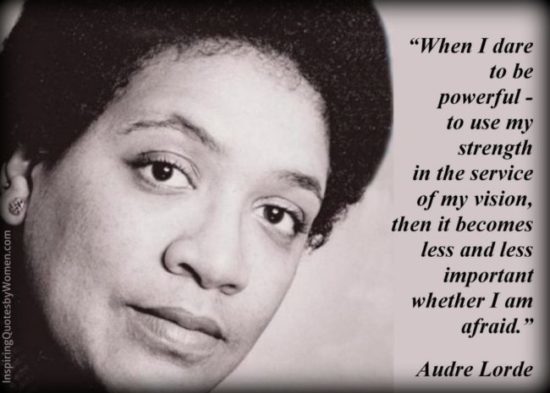You might be thinking, “What are you talking about? Apologies are my way of showing respect lest I appear insensitive or rude.”
I’m not suggesting that there isn’t a place for apology in our lives, but most women apologize ad nauseum, which puts them at a disadvantage.
When we constantly say, “I’m sorry” for a perceived upset in another, (which may have nothing to do with us!), for being misunderstood, for speaking out, we’re taking responsibility for someone else’s feelings, diminishing ourselves at the same time.
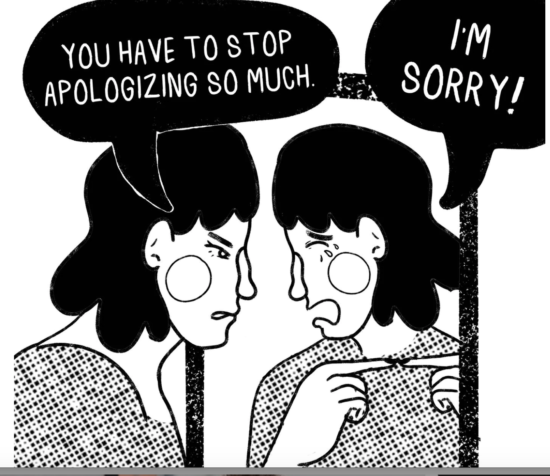
Even when it’s clear that we’re in the right, there’s a tendency to preface an objection with “I’m sorry,” as when someone cuts in front of you in the grocery store line, and you reply, “I’m sorry, but I was next.”
How many times a day do you say, “I’m sorry”?
I bet more than you think because it’s automatic for many women. We’ve been conditioned as female children to seek approval. Our endless apologies stem from this training as in our mother’s constant reminders to “be polite,” or as my grandmother was fond of saying, “Don’t upset the apple cart.” Putting one’s self last can turn little girls into Stepford wives.
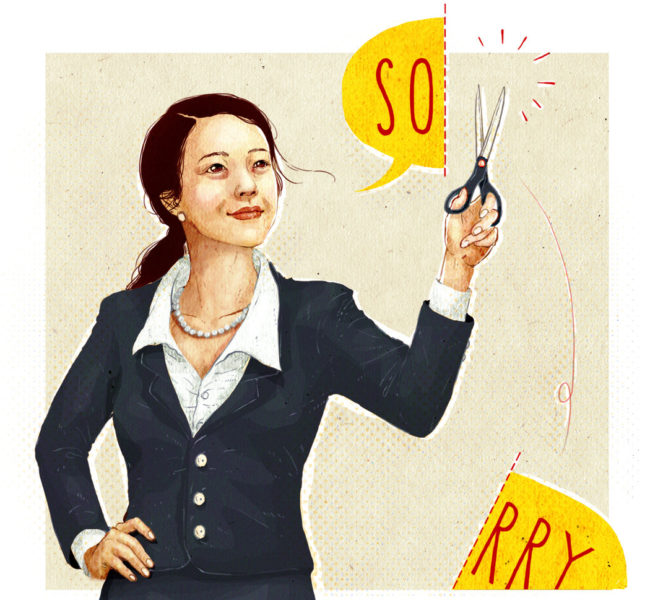
A woman breaking her apology habit
Rebecca Solnit in her book, The Mother of All Questions, reflects on politeness: “What we call politeness often means training that other people’s comfort matters more.”
A woman’s tendency to silence herself is frequently motivated by a desire to avoid conflict, operating from the fear that speaking up could sever the relationship. I’ve been in two women’s spiritual communities founded on a deep concern for the sacred and for mutual growth. Lacking a healthy model for working through conflict, both of these groups unraveled when sharp differences emerged. In one community a few women left, rather than speak out. They chose retreat over confrontation. How unfortunate when the fear of rejection keeps a woman from speaking her truths!
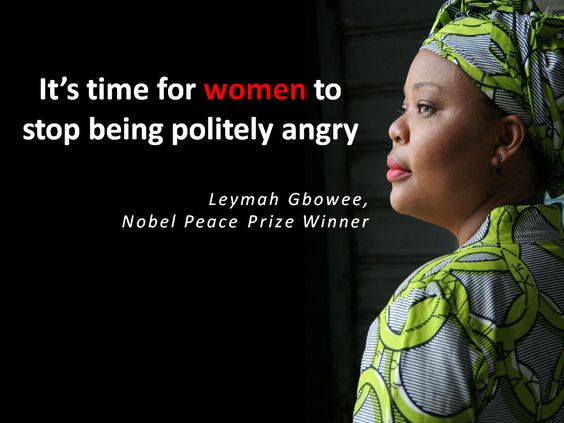
The dominant cultural model for resolving differences is the male one of domination where the loudest voice often wins the day. Women need to recognize that the deficit model for resolving conflict isn’t the only option. In fact, it’s a lousy option.
Women need to practice expressing different positions in a respectful manner on the order of something like, “I have a different take, which I’d like you to consider.” Speaking up for your beliefs may cause ruffles, but it’s a small price to pay for being true to yourself. Developing a strong backbone is the path to becoming a strong woman.

AOC speaks truth to power thoughtfully: a good model for speaking out
Twenty years ago I was part of women’s radio show where we couldn’t walk away from differences because we had to pull together to produce a weekly hour’s long program. It was demanding because, besides a famous guest, we had several components to the program.
Our desire to create the best possible show meant we had to be thick-skinned and vote down someone whose ideas seemed unworkable. I got used to put-downs like, “Pat, I can’t believe you suggested that!” We blended our objections with humor and respect. I loved all those women and miss them to this day. I wish I could bottle our conflict model. I might make a fortune.
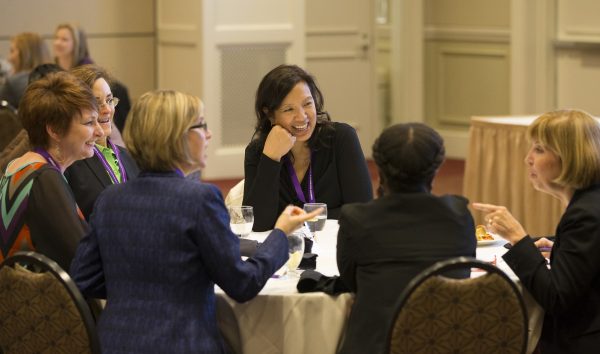
Women working through differences in a respectful manner
As women band together to combat social injustices, sexism, ageism, and the Trump wrecking machine, we have to overcome our fears of conflict. The world needs peace-loving women with strong voices. Let’s cut back on all those “I’m sorry’s.” They’re taking up valuable airtime that would be better used for standing up for what we believe in.
